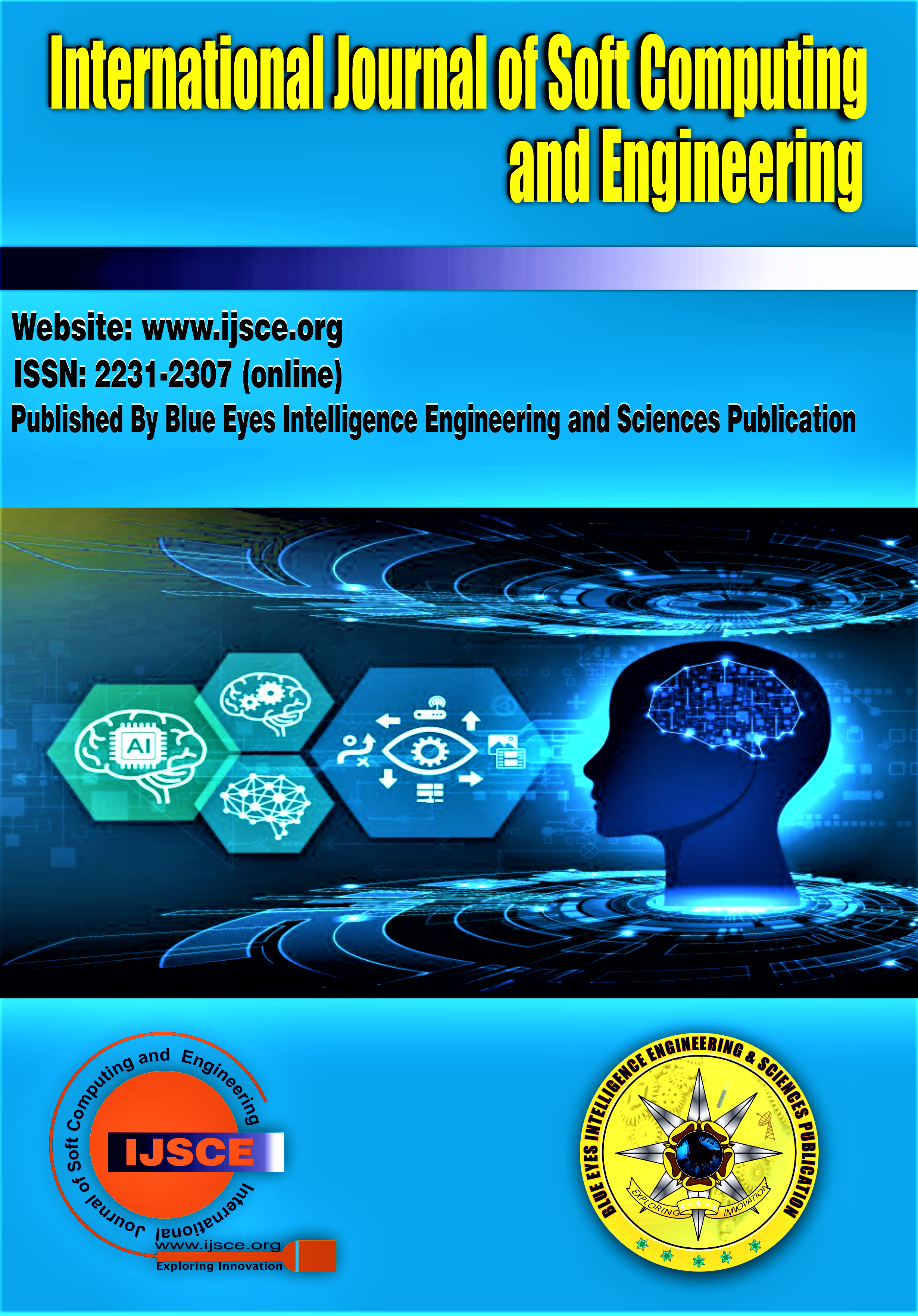Using Supervised and Unsupervised Machine Learning Models to Analyze Students Academic Performance
Main Article Content
Abstract
Examination result repositories generated by most universities can serve as machine learning datasets for training various models to gain insights from the data. These datasets can train multiple linear regression models to determine a student's cumulative grade point average (CGPA), or the score that a student will get in specific courses. Additionally, classification-based supervised machine learning models can use these datasets to provide insights into the class result that a student will obtain. These insights can be invaluable for academic advising and early intervention. Moreover, these datasets can train clustering-based unsupervised machine learning models, such as the K-means clustering model, to understand how student results are grouped into various clusters. This information can be crucial for planning and evaluating the quality of the university. This paper uses the dataset of undergraduate students' examination results from the Department of Computer Science at the University of Nigeria, Nsukka, to train three supervised machine learning models and one unsupervised machine learning model, utilizing Jupyter Notebook as the Python IDE. The training results showed acceptable accuracies of 91.5% for the Naïve Bayes model and 95.1% for the Decision Tree model. The linear regression model demonstrated a negligible root mean square error of 8.23×10−18, while the K-means clustering model exhibited an acceptable Silhouette metric of 0.12.
Downloads
Article Details
Section

This work is licensed under a Creative Commons Attribution-NonCommercial-NoDerivatives 4.0 International License.
How to Cite
References
Khalil Ahammad, Partha Chakraborty, Evana Akter, Umme Honey Fomey, Saifur Rahman, “A Comparative Study of Different Machine Learning Techniques to Predict the Result of an Individual Student using Previous Performances,” International Journal of Computer Science and Information Security (IJCSIS), Vol. 19, No. 1, January 2021. DOI:10.5281/zenodo.4533374
Mohammed Nasiru Yakubu, “A. Mohammed Abubakar, Applying machine learning approach to predict students’ performance in higher educational institutions,” Kybernetes © Emerald Publishing Limited 0368-492X DOI 10.1108/K-12-2020-086, https://www.emerald.com/insight/0368-492X.htm
Revathi Vankayalapati, Kalyani Balaso Ghutugade, Rekha Vannapuram, Bejjanki Pooja Sree Prasanna, “K-Means Algorithm for Clustering of Learners Performance Levels Using Machine Learning Techniques,” Revue d'Intelligence Artificielle, Vol. 35, No. 1, February, 2021, pp. 99-104 Journal homepage: http://iieta.org/journals/ri https://www.researchgate.net/publication/350550593_K-Means_Algorithm_for_Clustering_of_Learners_Performance_Levels_Using_Machine_Learning_Techniques https://doi.org/10.18280/ria.350112
K.P. Prakasha , and K Selvakumari, “An Intelligent Clustering Technique for Analysing the Performance of Students during Lockdown Period of Covid-19,” Turkish Journal of Computer and Mathematics Education Vol.12 No.9 (2021), 2499– 2512 DOI: https://doi.org/10.17762/turcomat.v12i9.3733
A’zraa Afhzan Ab Rahim, Norlida Buniyamin, “Predicting Engineering Students’ Academic Performance using Ensemble Classifiers- A Preliminary Finding,” JOURNAL OF ELECTRICAL AND ELECTRONIC SYSTEMS RESEARCH https://doi.org/10.24191/jeesr.v20i1.013
Yazan A. Alsariera, Yahia Baashar, Gamal Alkawsi, Abdulsalam Mustafa, Ammar Ahmed Alkahtani and Nor’ashikin Ali, “Assessment and Evaluation of Different Machine Learning Algorithms for Predicting Student Performance,” Hindawi Computational Intelligence and Neuroscience Volume 2022, Article ID 4151487, 11 pages https://doi.org/10.1155/2022/4151487
Shaohai Huang1 and Junjie Wei, “Student Performance Prediction in Mathematics Course Based on the Random Forest and Simulated Annealing,” Hindawi Scientific Programming Volume 2022, Article ID 9340434, 9 pages https://doi.org/10.1155/2022/9340434
Marina Delianidi, and Konstantinos Diamantaras, “KT-Bi-GRU: Student Performance Prediction with a Recurrent Knowledge Tracing Neural Network,” IEEE TRANS. LEARNING TECHNOLOGIES, May 26, 2022 DOI:10.36227/techrxiv.20055545.v1https://doi.org/10.36227/techrxiv.20055545.v1
M. P. R. I. R. Silva, R. A. H. M. Rupasingha, B. T. G. S. Kumara, “A Comparative Study of Predicting Students’ Academic Performance Using Classification Algorithms,” 978-1-6654-0741-0/22/$31.00 ©2022 IEEE, https://www.researchgate.net/publication/359964811_A_Comparative_Study_of_Predicting_Students%27_Academic_Performance_Using_Classification_Algorithms?enrichId=rgreq-b5c4b78c687c517d8b646bae15a7c134-XXX&enrichSource=Y292ZXJQYWdlOzM1OTk2NDgxMTtBUzoxMTQ2NjIzNTg1NDYwMjI3QDE2NTAzODc3NzQ2NzY%3D&el=1_x_2&_esc=publicationCoverPdf
Thaher, T.; Zaguia, A.; Al Azwari, S.; Mafarja, M.; Chantar, H.; Abuhamdah, A.; Turabieh, H.; Mirjalili, S.; Sheta, A., “An Enhanced Evolutionary Student Performance Prediction Model Using Whale Optimization Algorithm Boosted with Sine-Cosine Mechanism,” Appl. Sci. 2021, 11, 10237. https://doi.org/ 10.3390/app112110237 https://doi.org/10.3390/app112110237
Zafari, M., Sadeghi-Niaraki, A.; Choi, S.-M.; Esmaeily, A., “A Practical Model for the Evaluation of High School Student Performance Based on Machine Learnin,”. Appl. Sci. 2021, 11, 11534. https://doi.org/10.3390/app112311534 Academic Editor: Mayank Kej https://doi.org/10.3390/app112311534
Baashar, Y., Alkawsi, G., Mustafa, A., Alkahtani, A.A., Alsariera, Y.A., Ali, A. Q., Hashim, W., Tiong, S.K., “Toward Predicting Student’s Academic Performance Using Artificial Neural Networks (ANNs).,” Appl. Sci. 2022, 12, 1289, 2022, https://doi.org/10.3390/app12031289
Nida Aslam, Irfan Ullah Khan, Leena H. Alamri, Ranim S. Almuslim, “An Improved Early Student’s Performance Prediction Using Deep Learning, International Journal of Emerging Technologies in Learning (iJET), 16(12), pp. 108–122. “ https://doi.org/10.3991/ijet.v16i12.20699 , http://www.i-jet.org
Mukesh Kumar, Chetan Sharma, Shamneesh Sharma, Nidhi, Nazrul Islam, “Analysis of Feature Selection and Data Mining Techniques to Predict Student Academic Performance,” 2022 International Conference on Decision Aid Sciences and Applications (DASA), https://www.researchgate.net/publication/359520060_Analysis_of_Feature_Selection_and_Data_Mining_Techniques_to_Predict_Student_Academic_Performance?enrichId=rgreq-928653ef18577a9777570376e2b471fb-XXX&enrichSource=Y292ZXJQYWdlOzM1OTUyMDA2MDtBUzoxMTM4ODY4NzQ5MzY5MzQ0QDE2NDg1Mzg4NzcwNDg%3D&el=1_x_2&_esc=publicationCoverPdf
ALBOANEEN, D., ALMELIHI, M., ALSUBAIE, R., ALGHAMDI, R., ALSHEHRI, L., ALHARTHI, R., “DEVELOPMENT OF A WEB-BASED PREDICTION SYSTEM FOR STUDENTS’ ACADEMIC PERFORMANCE. DATA,” 2022, EDUCATION DATA MINING, 7, 21. HTTPS://DOI.ORG/10.3390/ DATA7020021 https://doi.org/10.3390/data7020021
Ayon Roy, Md. Raqibur Rahman, Muhammad Nazrul Islam, Nafiz Imtiaz Saimon, M Aqib Alfaz, and Abdullah-Al-Sheak Jaber, “A Deep Learning Approach to Predict Academic Result and Recommend Study Plan for Improving Student’s Academic Performance,” International Conference on Ubiquitous Computing and Intelligent Information Systems (ICUIS 2021) At: Erode, India. https://www.researchgate.net/publication/349735414_A_Deep_Learning_Approach_to_Predict_Academic_Result_and_Recommend_Study_Plan_for_Improving_Student%27s_Academic_Performance
Muhammad Sudais, Muhammad Sudais, Danish Asa, Student’s Academic Performance Prediction – A Review, https://doi.org/10.21203/rs.3.rs-1292468/v1
Esmael Ahmed, “Student Performance Prediction Using Machine Learning Algorithms,” Hindawi Applied Computational Intelligence and Soft Computing Volume 2024, Article ID 4067721, 15 pages https://doi.org/10.1155/2024/4067721
Shaik, I., Nittela, S. S., Hiwarkar, Dr. T., & Nalla, Dr. S. (2019). K-means Clustering Algorithm Based on E-Commerce Big Data. In International Journal of Innovative Technology and Exploring Engineering (Vol. 8, Issue 11, pp. 1910–1914). https://doi.org/10.35940/ijitee.k2121.0981119
Gupta, M. K., & Chandra, P. (2019). MP-K-Means: Modified Partition Based Cluster Initialization Method for K-Means Algorithm. In International Journal of Recent Technology and Engineering (IJRTE) (Vol. 8, Issue 4, pp. 1140–1148). https://doi.org/10.35940/ijrte.d6837.118419
Maheswari, Dr. K. (2019). Finding Best Possible Number of Clusters using K-Means Algorithm. In International Journal of Engineering and Advanced Technology (Vol. 9, Issue 1s4, pp. 533–538). https://doi.org/10.35940/ijeat.a1119.1291s419
Patravali, S. D., & Algur, Dr. S. P. (2023). COVID-19 Sentiment Analysis using K-Means and DBSCAN. In International Journal of Emerging Science and Engineering (Vol. 11, Issue 12, pp. 12–17). https://doi.org/10.35940/ijese.l2558.11111223
JAIN, N., & KUMAR, R. (2022). A REVIEW ON MACHINE LEARNING & IT’S ALGORITHMS. IN INTERNATIONAL JOURNAL OF SOFT COMPUTING AND ENGINEERING (VOL. 12, ISSUE 5, PP. 1–5). HTTPS://DOI.ORG/10.35940/IJSCE.E3583.1112522





